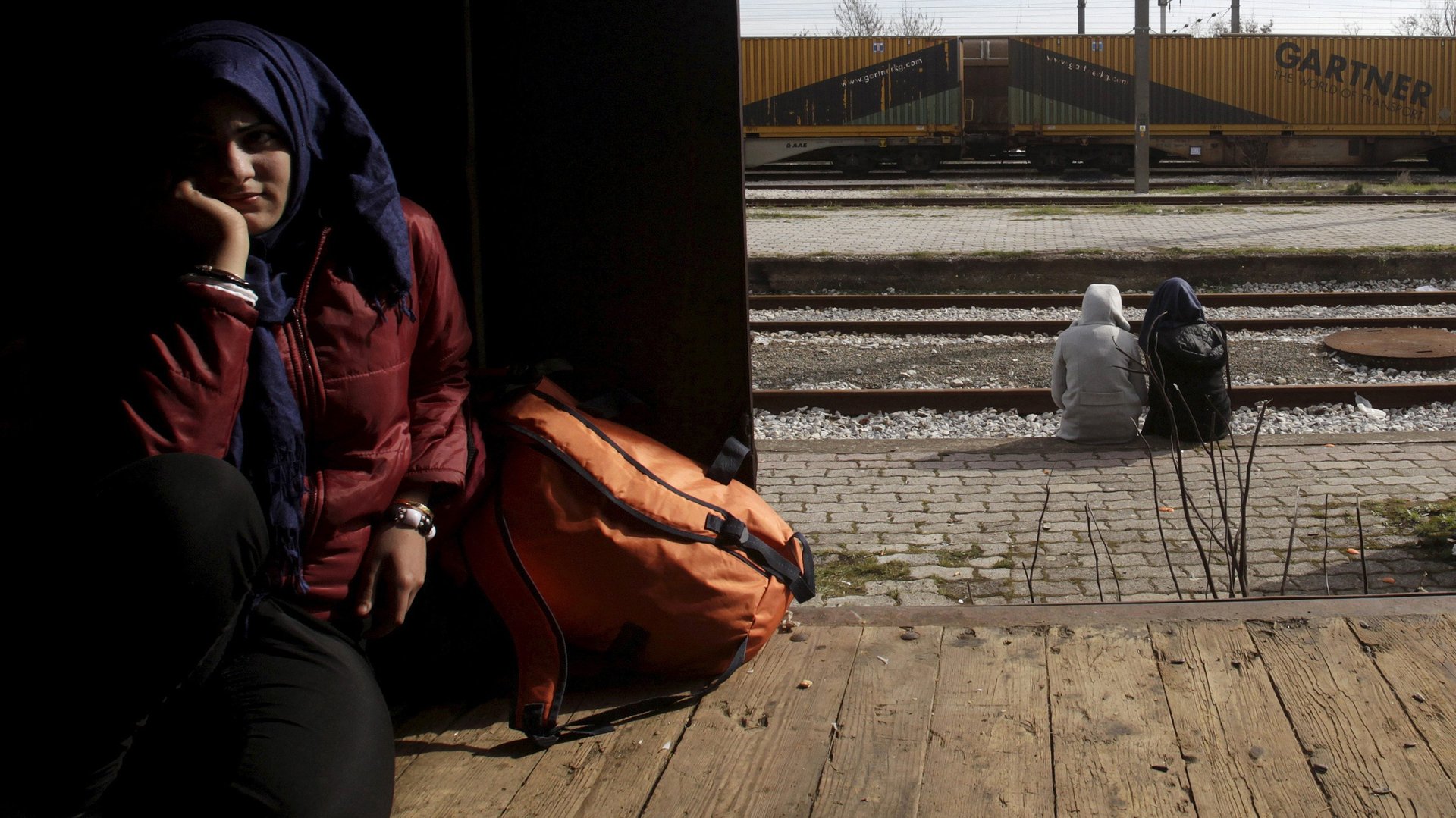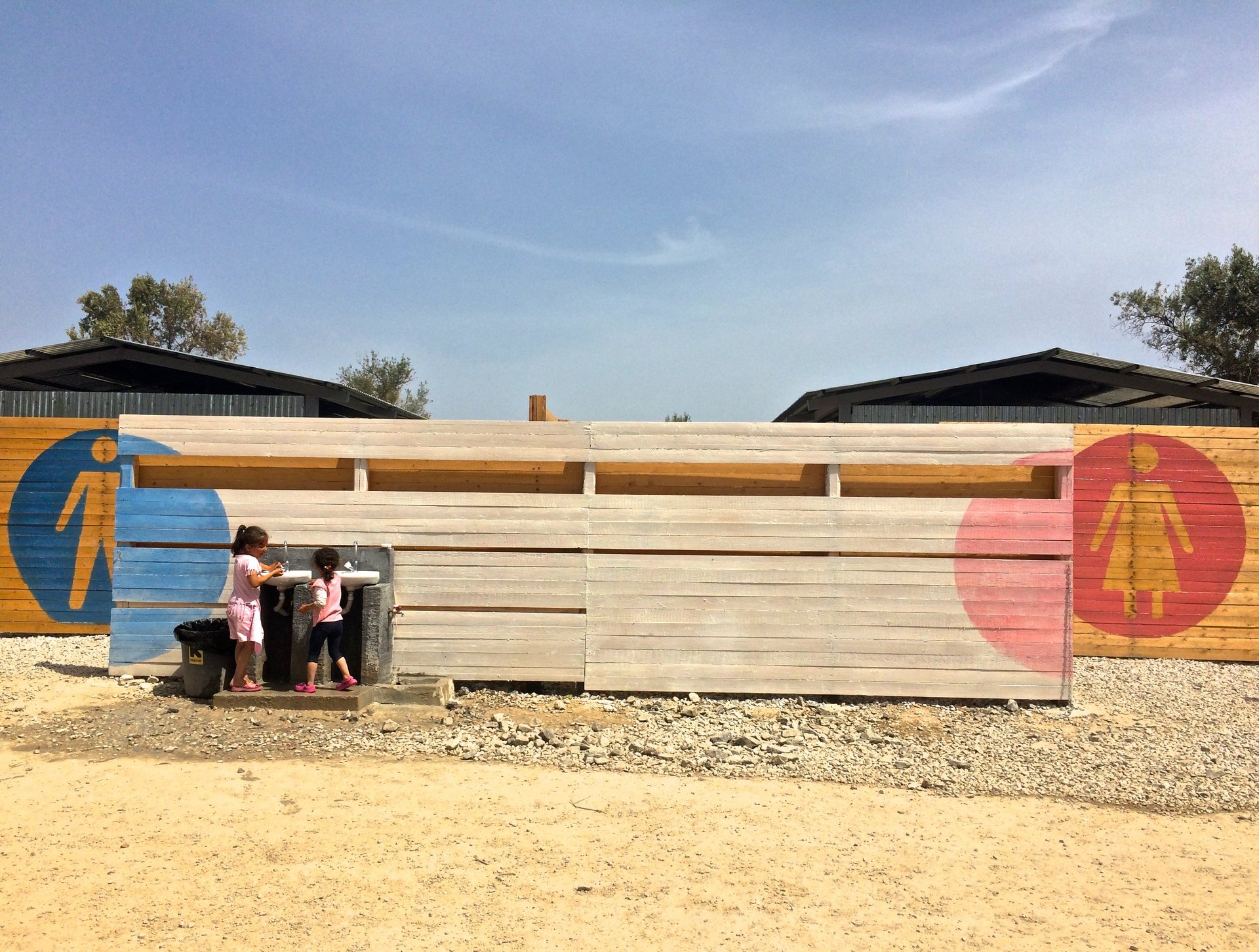The radically simple way to make female refugees safer from sexual assault: decent bathrooms
Lesbos, Greece


Lesbos, Greece
For the tens of thousands of refugee women trapped in Greece, daily life is made that much more treacherous by a very basic problem: unsafe bathrooms.
Refugee camps tend to have too few bathrooms, which are often mixed and unprotected, making them hotspots for sexual attacks on women and girls. While there are no hard statistics, reported cases include German guards at a reception center peeping at women in the bathrooms and attempted rapes at bathrooms along the refugee trail.
At Idomeni, Greece’s largest informal refugee camp, which the authorities started clearing this week, there were just 193 bathrooms and 84 showers for over 12,000 people, according to Emmanuel Massart of Doctors Without Borders (MSF). Women there told me they wouldn’t go to the bathroom alone, and not at all at night.
The lack of of safe, private washrooms feeds into a host of daily indignities, women told me. Most of the refugees are from countries like Iraq, Afghanistan, and Syria, where women often cover their hair and wear conservative clothing around strangers. Living and sleeping in the often mixed quarters of overcrowded camps, they report, can mean being unable to take off their hijab for weeks, developing skin rashes, and avoiding food or drink so they don’t have to use bathrooms at night, when they’re most at risk of harassment.
The stress of refugee life also affects menstrual cycles. Women in camps in Greece told me that some of them experience unusually heavy flows, while others have less frequent periods. Without the privacy of a bathroom readily available, these stresses can be a minefield to navigate. Many of the women are also used to using squat toilets with water for washing, and find the Western-style seats in the refugee camps unclean.
“We have learned from so many mistakes in the past that women are at a greater risk for sexual assault and violence if they don’t have separate bathrooms,” says Gauri van Gulik, Amnesty International’s deputy director for Europe and Central Asia. And yet in Europe, where the humanitarian handbooks are often written, the standards are not being met.
The lack of bathrooms is at least partly a product of how Europe has handled the refugee crisis. At first, refugees were spending only a few days in Greece at processing centers, cities, and border towns, on their into western Europe. But in March Macedonia closed its border with Greece, blocking the Balkan route to Germany. Then Turkey and the EU signed a controversial deal to stem the refugee flows, leaving 53,000 refugees stuck in dire conditions in Greece—a country already on the economic brink. Greek authorities had never made Idomeni into a formal camp, so just to put in bathrooms and showers, MSF had to rent the land from a local farmer.
Last month, under the EU-Turkey deal, Greek authorities turned Moria transit center on the island of Lesbos into a closed detention site. Journalists cannot enter, but conversations with several women through the fence at Moria, where more than 3,000 people are held, relayed a bleak scene. One 17-year-old Syrian woman told me the bathrooms were always flooded or broken, or the water cut, and there was nowhere safe for women and girls like her to go.
But not far from Moria there is an example of how to do it right. In Kara Tepe, an open facility for nearly 1,000 vulnerable people who have been moved from Moria, the International Rescue Committee (IRC) has built a washing area with signs that clearly designate well-lit, gender-separated washing areas. The women’s spacious side has shower rooms, a mix of squat and western toilets, and a place to wash clothes.

As they dismantle Idomeni, Greek authorities are moving refugees to dozens of new camps they are setting up. The IRC is working to implement a Kara Tepe-like model in at least six of these camps. Many of the new sites are in remote areas without water and electricity supplies. But as pressures on Greece grow, so will pushes to cut costs— which often hit women first.
In the meantime, Europe’s chaotic responses to the refugee crisis means that thousands are still stuck in squalor. Safe bathrooms won’t fix the traumas wrought by war and politics, but they can make an enormous difference to women who, in their attempt to escape those traumas, are ending up vulnerable to sexual assault and other dangers instead.